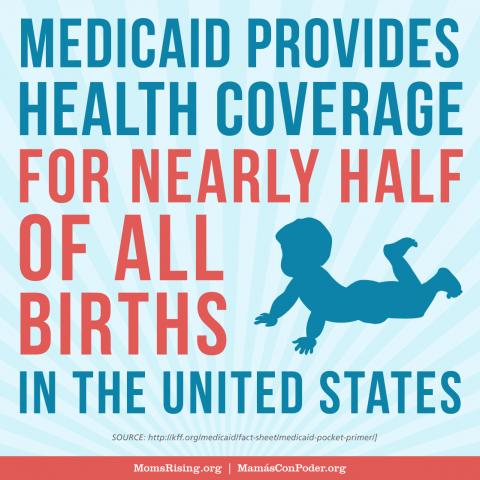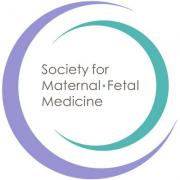
By Alison Stuebe, MD
Last week, Americans spent more than $23 billion on Mother’s Day gifts. On Sunday morning, moms woke up to jewelry, bouquets of flowers, and scattered crumbs between the sheets after so many breakfasts in bed.
How was this different from any other second Sunday in May? This Mother's Day, we celebrated motherhood amid a burgeoning threat to maternal health and wellbeing: the American Health Care Act (AHCA). If this bill becomes law, millions of women will lose their health insurance coverage, undoing progress in access to health care for women before, during, and after pregnancy.
As an obstetrician who cares for women with complicated pregnancies, I am especially concerned with the impact of the AHCA on women. Half of my patients receive maternity coverage from Medicaid. This funding will be cut by one-fourth under the AHCA, potentially slashing reimbursement to community health centers and safety net hospitals that care for low income mothers. Women of color would be hit hardest: they make up two-thirds of women who would lose insurance. Moreover, the AHCA denies funding to Planned Parenthood, which provides contraception, prenatal care, sexually transmitted infection and cancer screening to more than 2.5 million people in the US each year.
Without access to care or reliable contraception, women with chronic health problems like diabetes will be more likely to conceive when their disease is poorly controlled. Poor glucose control increases the risk of birth defects for a mother with diabetes from 3% to 40%; the AHCA will spawn a generation of children with preventable birth defects.
For children with birth defects, the AHCA would liberate insurance companies to deny coverage for their disability as a “preexisting condition,” and to place lifetime caps on insurance coverage. These are my patients: I care for women carrying pregnancies affected by complex birth defects, and for moms birthing babies at the very edge of viability. These newborns can weigh less than a can of soda, and may spend 6 months in neonatal intensive care. It’s entirely possible for an extremely preterm infant to exceed a lifetime cap for insurance coverage before he is even discharged from the hospital. The AHCA puts a price on that child’s head – and once he’s past his lifetime limit, he and his family are on their own.
Draconian cuts to Medicaid will impinge on innovative efforts, like North Carolina’s Medicaid Pregnancy Medical Home, that provide care coordination for mothers at risk of pregnancy complications. Care coordinators make sure women who’ve had preterm births get weekly injections of progesterone to prevent another early arrival, and they help moms quit smoking, preventing low birth weight babies and stillbirths. These preventive measures keep newborns out of neonatal intensive care, saving millions in health care costs and improving the health of future generations. All of that is on the chopping block if the AHCA becomes law.
Indeed, the AHCA threatens every woman’s wellbeing. The bill allows all payers, including Medicaid, individual market and employer based plans, to drop essential benefits, like cervical cancer screening, mammograms, mental health services, lactation support and maternity care. Half of pregnancies in the US are unplanned; without guaranteed maternity coverage, mothers-to-be could face tens of thousands of dollars in costs.
The AHCA’s disregard for the needs of new moms and their families is perhaps best illustrated by a provision requiring mothers on Medicaid to be back at work by 8 weeks postpartum, or lose their health coverage. Here in North Carolina, there are 30,000 families on the waiting list for child care subsidies. What do we expect these women to do with their 8-week-old infants if they have no childcare but must return to work to keep their health coverage?
Desperate circumstances call for desperate measures. Not long ago, a North Carolina mother did not have childcare for her 8-week-old baby. Desperate to keep her job, she drove to work, leaving her baby in the car seat in the parking lot. Every few hours, she went out on her break to feed, change, and cover her baby with a blanket. When she came out at the end of her shift, her baby had suffocated. And yet under the AHCA, moms who are not back at work by 8 weeks will lose their Medicaid.
It doesn't have to be this way. I call upon the Senators who are drafting health care legislation to support the wellbeing of women and their families with continued, uninterrupted affordable access and coverage for health care before, during and after pregnancy.
Alison Stuebe, MD, is an Obstetrician-Gynecologist in Chapel Hill, North Carolina. She is a member of the board for the Society for Maternal-Fetal Medicine.


The views and opinions expressed in this post are those of the author(s) and do not necessarily reflect those of MomsRising.org.
MomsRising.org strongly encourages our readers to post comments in response to blog posts. We value diversity of opinions and perspectives. Our goals for this space are to be educational, thought-provoking, and respectful. So we actively moderate comments and we reserve the right to edit or remove comments that undermine these goals. Thanks!